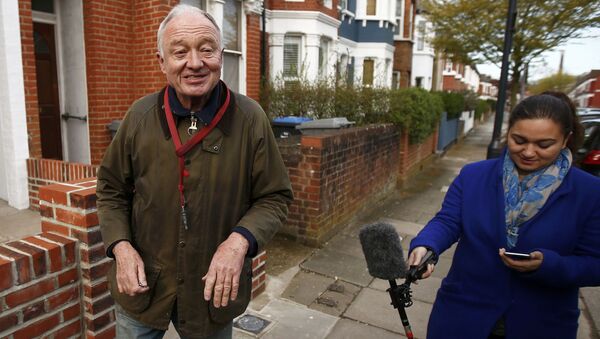Earlier this week, MP Naz Shah was suspended over social media posts critical of Israel, which her party's leader Jeremy Corbyn called "offensive and unacceptable," and yesterday the former Mayor of London Ken Livingstone met the same fate.
Naz Shah MP made a huge mistake. Unluckly for her, she didn't have powerful friends. My post earlier https://t.co/Fv66oa7xvE
— Sunny Hundal (@sunny_hundal) 27 April 2016
My apology to the Jewish community: https://t.co/Klx71FtmZ5 @JewishNewsUK
— Naz Shah MP (@NazShahBfd) 27 April 2016
Ken Livingstone was met with accusations of anti-Semitism following comments he made in an interview with the BBC on Thursday morning (28 April), in which he said:
"Let's remember when Hitler won his election in 1932 his policy then was that Jews should be moved to Israel. He was supporting Zionism… This is before he went mad and ended up killing six million Jews."
Mr Livingstone's comments refer to what was known as the 'Haavara Agreement' — grudgingly supported by Adolf Hitler during the late 1930's — designed to facilitate the emigration of German Jews to Palestine.
Though the policy was agreed with German Zionists, it is important to note that it was highly detrimental to emigrating Jews, as it forced them to surrender their possessions to the German state in the process.
Ken Livingstone orders his dog to "attack" reporters and avoids questions on the Labour Party's anti-Semitism row.https://t.co/a6Ug5SvRBs
— Channel 4 News (@Channel4News) April 29, 2016
Following the former mayor's comments, over 20 MPs — including Sadiq Khan, Luciana Berger and Jess Phillips — called for Ken Livingstone to be suspended from the Labour Party for anti-Semitism.
The Conservative Prime Minister David Cameron weighed in on Thursday, saying that "anti-Semitism is like racism, it is unacceptable in a modern political party and every political party facing this problem has got to deal with it."
Utterly wrong for Cameron to use Ken row to score political points. Anti-semitism & racism aren't just a Labour, but a societal problem
— Sunny Hundal (@sunny_hundal) 28 April 2016
Ironically, the original reason Mr Livingstone took part in the interview was to diffuse the situation regarding MP Naz Shah's suspension earlier in the week, due to social media posts which were also deemed anti-Semitic. During the same interview for the BBC, Mr Livingstone said:
"I've been in the Labour party for 47 years, I've never heard anyone say anything anti-Semitic."
Though many within the Labour Party — as well as the wider Jewish community — have expressed unease, there is concern that legitimate criticism of Israeli policy is being unfairly conflated with anti-Semitic views. The Jewish Socialists' Group (JSG) for example, released a statement addressing this issue yesterday:
"Current fearmongering about anti-Semitism in the Labour Party [is] a conscious and concerted effort by right-wing political forces to undermine the growing support among Jews and non-Jews alike for the Labour Party leadership of Jeremy Corbyn, and a measure of the desperation of his opponents," the statement reads.
George Galloway calls Labour anti-Semitism row "an entirely synthetic crisis. Ken Livingstone said nothing wrong" https://t.co/k2ezZlJUg3
— Sky News (@SkyNews) 29 April 2016
"Anti-Semitism and anti-Zionism are not the same. Zionism is a political ideology which has always been contested within Jewish life since it emerged in 1897, and it is entirely legitimate for non-Jews as well as Jews to express opinions about it, whether positive or negative. Not all Jews are Zionists. Not all Zionists are Jews."
Corbyn's popularity though, is not replicated within the parliamentary party, which has been shifting to the right politically ever since the leadership of Tony Blair.
Corbyn has been a vocal critic of Israeli policy for decades, and has stressed that he is "totally opposed to anti-Semitism in any form within the party," adding: "The very small number of cases that have been brought to our attention will be dealt with swiftly and immediately."
The matter will now be investigated by the General Secretary and the National Executive of the Labour Party.



